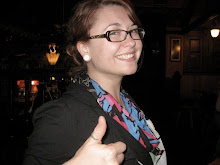1. The “electronic literacy” of new media has changed the way that we, as a culture, look at literacy. It has made changes in the tone and language of written communication and has changed the spatial relationship of oral to visual literacy. Electronic literacy is less formal than other forms of written literature by its very nature, “The new medium here reinforces the old, but of course transforms it because it fosters a new, self-consciously informal style” (Ong 133). This informality, as seen in most electronic, written correspondences, is best described as a step away from traditional rules of composition and a breakdown of cultural norms. Electronic media seems more changeable than traditional print publications; the ability to cut and paste or to easily delete and reproduce information at will makes the written word of electronic media seem less set. If something is so effortlessly changed, it seems much less official and because of this, less formal. It would seem far less offensive to send a casually written e-mail about an upcoming project to a superior (a still ill advised move) than if one were sending a formal written proposal on the same subject; the instant and abstract nature of the e-mail seems to breed a more casual tone and this is a phenomenon that seems to radiate through the electronic world.
As I read through this section of the text I thought about the actual textual-style of electronic literature and the ways in which it has changed the way that we think about literacy. It is no longer enough to have the ability to read at a higher level as the only necessity for understanding all of the written work within the sphere of the genre; instead, it is now necessary to understand several types of written and visual literacy simultaneously within a “secondary literacy” within the realm of the medium, such as the written language of electronic media, (an idea to be discussed in detail later). This is a big separation from what is expected from the conventions of traditional written mediums. I am from a generation that has grown up during personal electronic era; I had a computer in high school, but no cell phone until after. The casual nature and tone of electronic media is something I am comfortable with but I still hold on to the idea that correspondences and written work produced for public consumption should be formal and polite. I can only hope that the trend for electronic media’s informal nature will not break down the tradition of formal written mediums the way that e-mail has changed how we contact and connect with one another on a personal level, I miss snail mail and I would, in my own snooty way, miss the more formal tone of traditional literacies (is that a word? ha!)

No comments:
Post a Comment